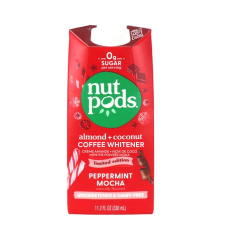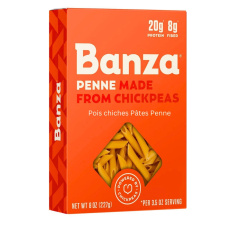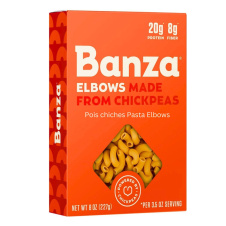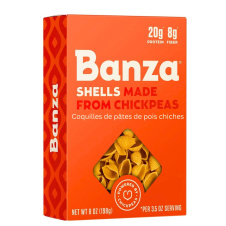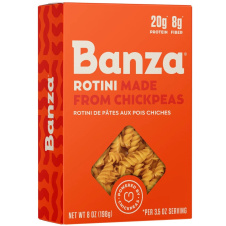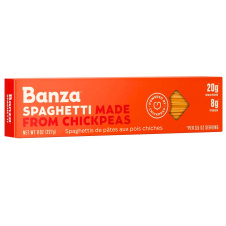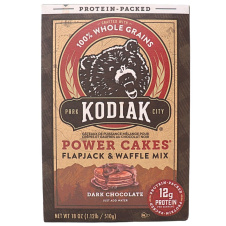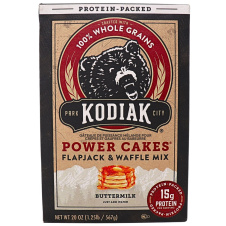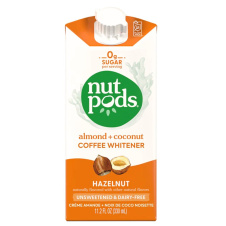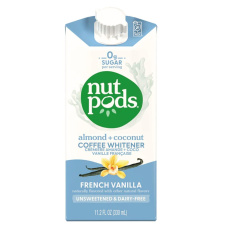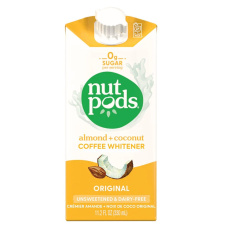Affichage navigation

Foods for a Healthy Bulking Season
Have you been dieting for a while? Are you tired of dieting? Well, it's likely that your body is tired of dieting too! So, what is the opposite of dieting? Bulking! Check out all of the health benefits here...
What is Bulking Season?
Bulking season is arguably the most wonderful time of the year for all fitness-fanatics. It is a time filled with abundances of food, fun workouts and some much-needed r&r. The bulking season typically begins in the winter (December) and runs to the beginning of spring (March). It typically lasts two to three months, but this may vary depending on your fitness goals.
What is the Purpose of Bulking?
During the summer months (or before), most people enter a "cutting phase" to get lean for summer. These months involve lots of hard work and lower calories to cut weight. When our body is placed in a calorie deficit for some time, you can lose weight, but you can also lose muscle. Additionally, since your body is not getting enough energy, you might have difficulty lifting heavier weights, powering through longer and more intense workouts, leaving you feeling less fit and less strong.
And, although most love that feeling of looking shredded, your body typically, for survival purposes, prefers not to stay at a very low body fat percentage. Having a very low body weight can stress out your body and can potentially cause health issues. And, this is where the bulking season comes in!
Bulking season is a phase that allows your body to recover. During this time, you focus on getting enough or a surplus of calories, lifting heavier weights or performing more intense workouts, and allow your body to rest. The ultimate goal is to build more muscle and get stronger. Additionally, the extra muscle you build during the bulking period can help you lose weight more effortlessly in the future. Why? Because you'll have more muscle. The more muscle you have, the more calories you'll burn.
Can Anyone Participate in Bulking Season?
Yes, it is not just reserved for bodybuilders. Anyone is welcomed to participate.
Will Bulking Make Me Fat?
When done correctly, no. You will experience some weight gain, but with a proper diet plan and workout plan, it will mostly be from muscle.
How Do You Bulk?
Eat more food, workout, rest more, sounds easy, right? Truth be told, most people don't bulk correctly, causing them to gain excess fat and weight. But don't be afraid! Keep reading to find out how you can have a healthy and successful bulking season.
Here are 10 mistakes to avoid this bulking season:
- Not Calculating Your Calories: Your diet is the most crucial part of properly bulking. You need to ensure that you begin by eating enough calories to maintain your current weight. But, you won't know how much to eat if you don't calculate your calories.
- Not Doing a "Trial Run" Before Beginning: Calorie calculators are not always accurate. You need to test your body's response to eating the number of calories estimated and find the minimum number of calories required to maintain your weight. If you skip this step, you may not see results from your bulk, or you may overdo it. Here is how you do it: Weigh yourself and calculate your estimated calorie needs to maintain your weight. Then, eat the number of calories you estimated for at least three days. During this period, weigh yourself daily and take note of your weight. Once you have a minimum of three weight readings recorded, take the weight readings' median, this number is likely your most accurate weight. If you notice that your weight went up from your initial weight, your calorie estimation might be too high. If you noticed that your weight went down, then your calorie estimation might be too low. If your weight stays the same, then you've got your maintenance calorie needs! Once you know your real maintenance calorie needs, you can use it as a starting point to progressively increase your calorie intake.
- Not Setting Goals: How do you know where you're going if you don't have a destination? The same saying applies to fitness goals. Before you start, pick a goal weight and or body fat percentage. This will allow you to create a better plan and avoid gaining excess fat.
- Thinking You Can Eat "Whatever You Want": This mentality offers a one-way trip to excessive fat gain and health problems. Although you can add more calorie-dense foods to your diet, this doesn't mean you can eat whatever you want, whenever you want. You should choose nutrient-dense and calorie-dense foods. There are also simple diet swaps that you can also make to help you bulk. See examples below of the best food for bulking:
Eat More of:
- Nuts: Nuts, nut butter, trail mix, spreads, and nut-based products are an easy way to add protein and calories without feeling like you're stuffing yourself. Add them to salads, oats, or snack on them frequently.
- Beans, chickpeas, legumes: They're packed with protein and calories in a small package. Products made of beans and legumes may also be higher in calories and protein to help you meet your goals.
- Sauces & Oils: Add sauces, BBQ sauces, dipping sauces, salad dressings, and healthy oils to your meals. Feel free to eat more sauce-based dishes like a creamy alfredo pasta too!
- Grains: Add more whole-grains to your diet. Grains such as granolas, granola bars, pasta, rice, and cereals are an excellent source of nutrients and calories.
- Smoothies and Shakes: Smoothies and shakes are an easy way to pack in some calories without all of the chewing. Choose low-sugar or no sugar added options when possible.
- Calorie-Dense Fruits: Fruits such as mangos, avocados, bananas, and apples are high in calories and nutrients.
- Cheese: If your diet allows you to eat dairy products, adding cheese to your dishes such as in salads, pasta, and sandwiches, is an easy way to add more calories.
- Starches: Ensure to include starches such as sweet potatoes and corn in your meals.
Swap:
- Low-fat Foods: Swap low-fat milk, cheeses, dressings, condiments and meats for higher fat options.
- Milk for Cream: If you enjoy your morning coffee or tea with milk, try switching it for a low-sugar or no-sugar-added creamer. Using a creamer will add taste and calories.
Eat Less of:
- Processed foods
- Chips, candy and chocolate.
- Increasing Your Calories Too Quickly: Give your body time to respond. Gaining too much weight too quickly will stress out your body. Start by just trying to maintain your weight. After a couple of weeks, begin by adding 50 calories, then 100 calories and so on. Typical bulks involve increasing your calorie intake anywhere from 100-350 calories per day for the average individual. However, this may vary depending on your genetics, experience and goals.
- Not Tracking Your Progress: You should be monitoring your weight and gym performance closely. This is key for preventing excessive weight gain and reaching your goals.
- Force-Feeding Yourself: Although your goal is to take in more calories, you should not be force-feeding yourself. Force-feeding can result in disordered eating patterns. Instead, as mentioned above, look for opportunities to eat more calorie-dense foods.
- Cutting Out Cardio: "Cardio" is short for cardiovascular, meaning your heart. Exercise keeps your heart in tip-top shape, so you shouldn't stop doing cardio because you're bulking. Participating in a minimum of 10 minutes a day of any form of cardio is recommended.
- Not Eating Enough Protein: As you may know by now, protein is a pretty important nutrient. Protein is the building block of muscles. Since one of the bulking phase goals is to put on muscle, you're going to need to meet your protein needs. Protein needs typically range between 0.8 grams of protein per kilogram of body weight to 2.0 grams of protein per kilogram of body weight.
- Not taking Rest Days: A major goal of bulking is to allow your body to rest and recover. Although it is important to get that work in at the gym, your body may need longer recovery periods since you will likely be lifting heavier weights or participating in more intense workouts.
The bulking season comes with many perks, but it needs to be done correctly to achieve maximum results. The most important thing to remember is that your diet has to stay clean.
Ready to Get Started? Shop Our Favourite Calorie-Dense, High-Protein Bulking Essentials! Options available for Keto, Paleo, Gluten-Free, Vegan, Plant-based, Whole30, AIP and more! Want to learn more about How to Bulk on a Diet? Read here!








